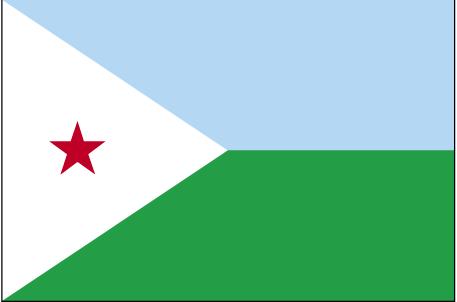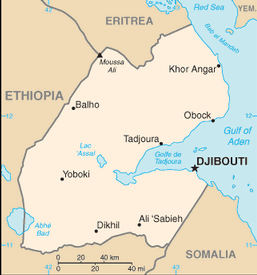Investing in Djibouti


The economy is based on service activities connected with the country's strategic location and status as a free trade zone in the Horn of Africa. Two-thirds of Djibouti's inhabitants live in the capital city; the remainder are mostly nomadic herders. Scanty rainfall limits crop production to fruits and vegetables, and most food must be imported. Djibouti provides services as both a transit port for the region and an international transshipment and refueling center. Imports and exports from landlocked neighbor Ethiopia represent 70% of port activity at Djibouti's container terminal. Djibouti has few natural resources and little industry. The nation is, therefore, heavily dependent on foreign assistance to help support its balance of payments and to finance development projects. An unemployment rate of nearly 60% in urban areas continues to be a major problem. While inflation is not a concern, due to the fixed tie of the Djiboutian franc to the US dollar, the artificially high value of the Djiboutian franc adversely affects Djibouti's balance of payments. Per capita consumption dropped an estimated 35% between 1999 and 2006 because of recession, civil war, and a high population growth rate (including immigrants and refugees). Djibouti has experienced relatively minimal impact from the global economic downturn, but its reliance on diesel-generated electricity and imported food leave average consumers vulnerable to global price shocks.
Central Bank of Djibouti - http://www.banque-centrale.dj/
Countries that border Djibouti: Eritrea | Ethiopia | Somalia
Learn more:
Back to Country Investing



